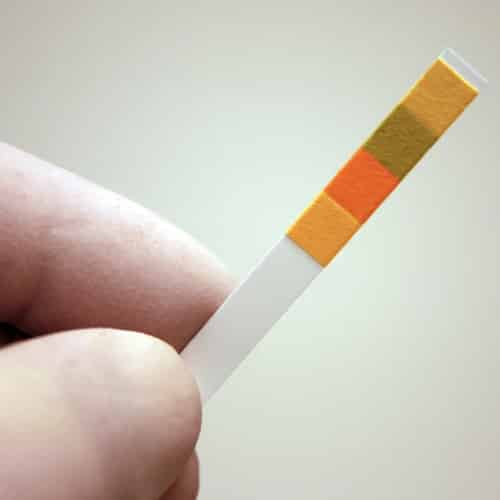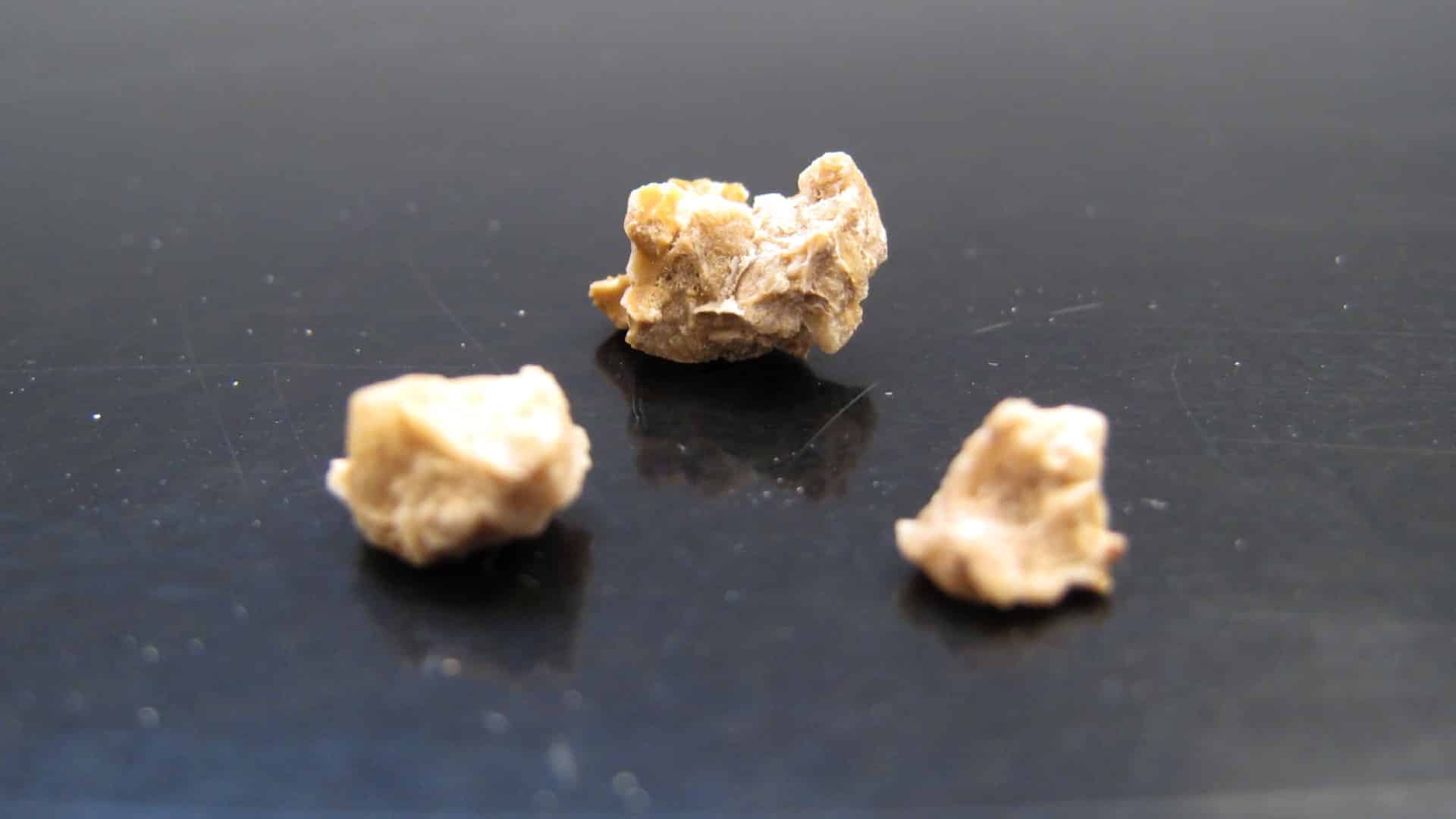
Acid/base Balance
Dietary acid load is determined by the balance of acid-inducing foods and alkaline- (base-) forming foods. Animal protein is generally more acid-forming because it tends to have higher levels of sulfur-containing amino acids, such as methionine, which produce sulfuric acid when metabolized in the body. Fruits and vegetables, on the other hand, are generally base-forming, which help neutralize acids in our kidneys.
Ancient human diets, like those of our fellow great apes, largely consisted of plants, so they likely produced more base than acid in the kidneys of our ancestors. Humans evolved eating these alkaline (base-forming) diets over millions of years. Most contemporary diets, on the other hand, produce acid in excess. This switch from base- to acid-forming diets may help explain our modern epidemic of kidney disease. A 2014 analysis of the diets and kidney function of more than 12,000 Americans found that a higher dietary acid load was associated with significantly higher risk of protein leakage into the urine, an indicator of kidney damage.
Acid-inducing diets are believed to impact the kidney through “tubular toxicity,” damage to the tiny, delicate, urine-making tubes in the kidneys. To buffer the excess acid formed by your diet, kidneys produce ammonia, which is a base and can neutralize some of that acid. Counteracting the acid is beneficial in the short term, but over the long run, all the extra ammonia in the kidneys may have a toxic effect. The decline in kidney function over time may be a consequence of a lifetime of ammonia overproduction. Kidneys may start to deteriorate in your 20, and by the time we reach our 80th birthday, we may be down to half capacity.
The chronic, low-grade, metabolic acidosis attributed to a meat-rich diet helps explain why people eating plant-based diets appear to have superior kidney function and why various plant-based diets seem to be so successful in treating chronic kidney failure. Under normal circumstances, a vegetarian diet alkalinizes the kidneys, whereas a nonvegetarian diet carries an acid load.
If people are unwilling to reduce their meat consumption, they should be encouraged to eat more fruits and vegetables to balance out that acid load. Researchers have found that giving people fruits and vegetables not only offered similar protections to baking soda (sodium bicarbonate) pills to help neutralize excess acid, but had the added advantage of lowering the subjects’ blood pressure.
For substantiation of any statements of fact from the peer-reviewed medical literature, please see the associated videos below.
Image Credit: mmoxley / Thinkstock. This image has been modified.
Popular Videos for Acid/base Balance

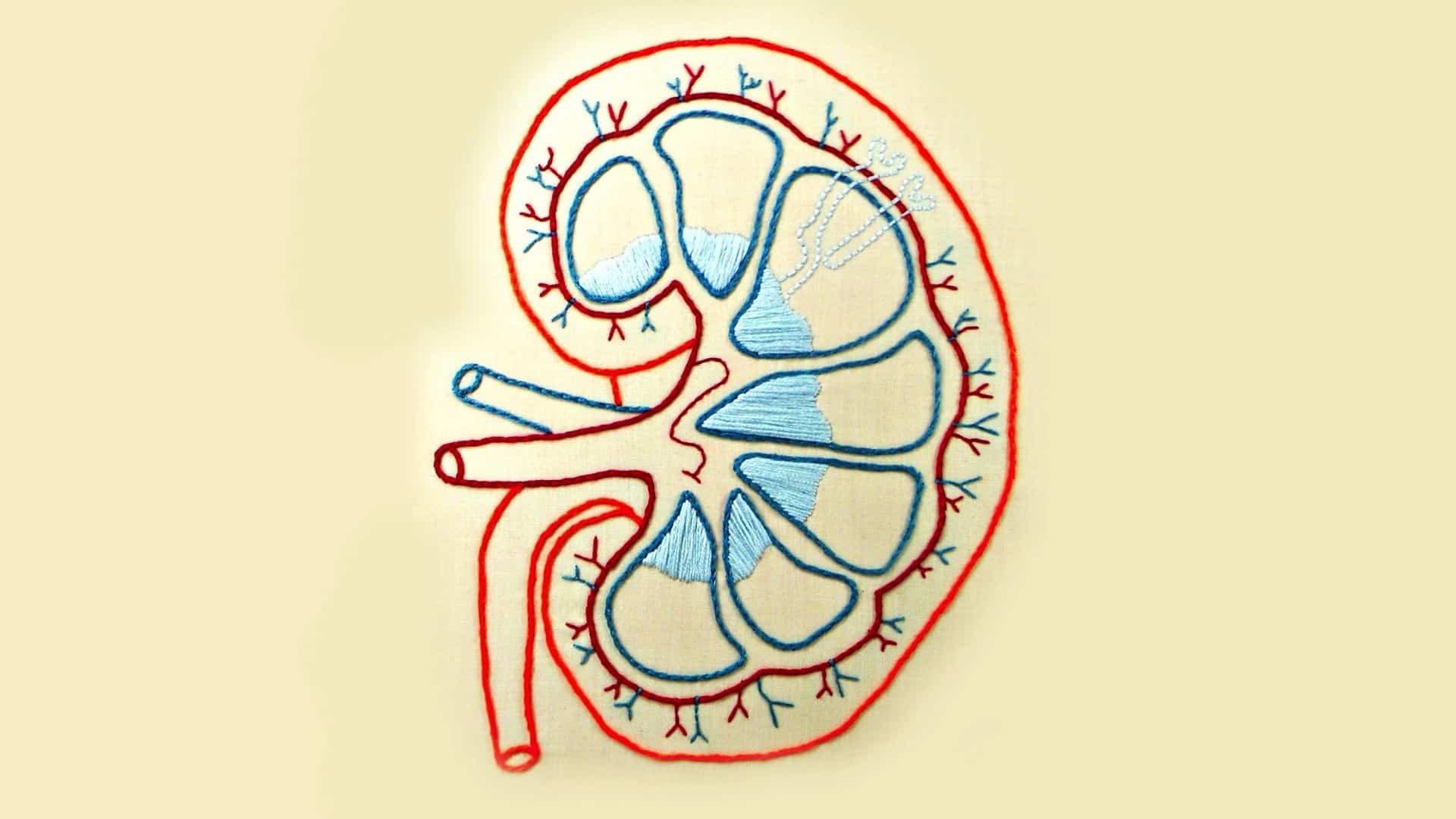
Protein Source: An Acid Test for Kidney Function
Dietary Acid Load is determined by the balance of acid-inducing food, such as meats, eggs,...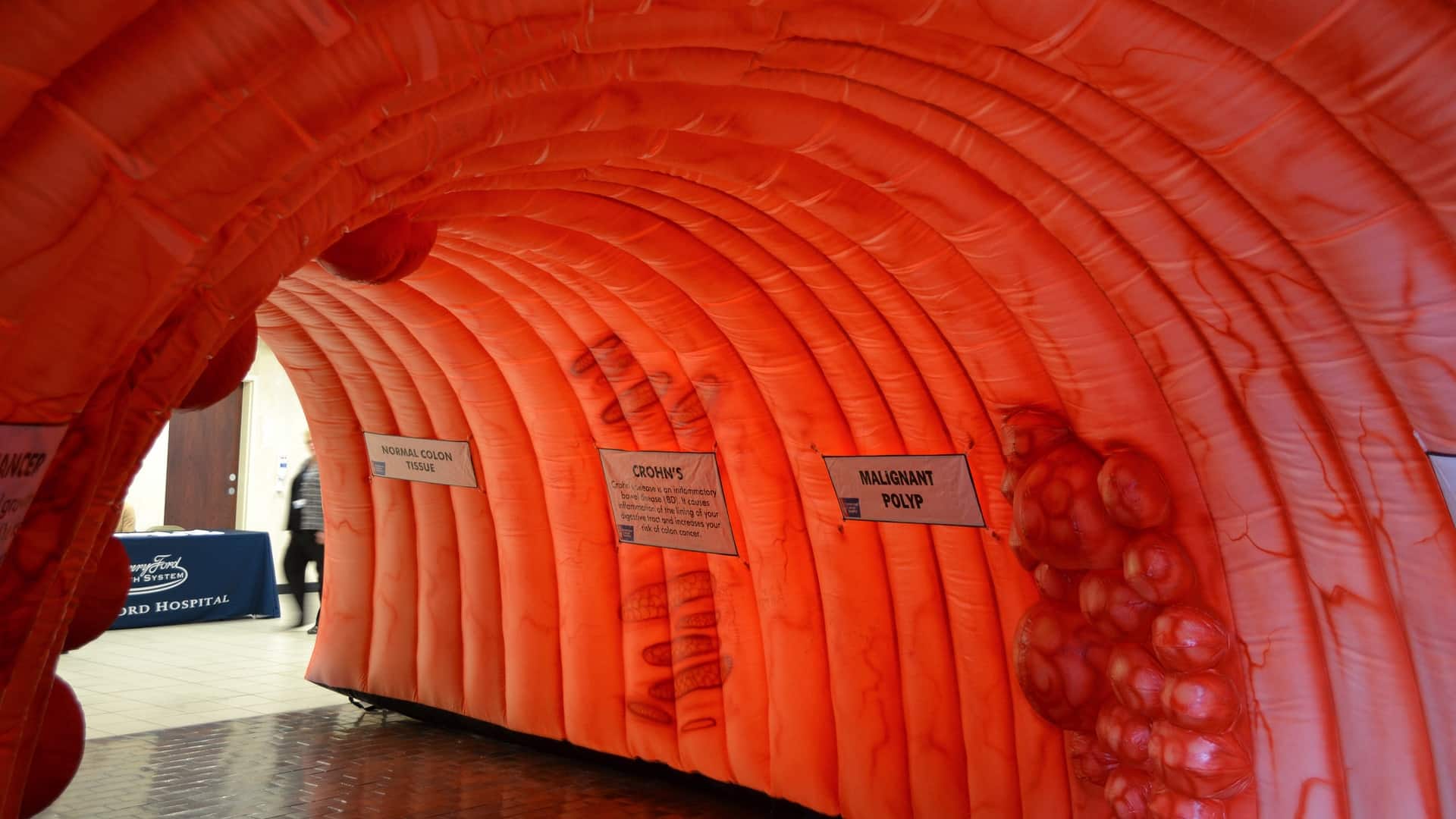
Stool pH & Colon Cancer
Fermentation of fiber in the gut may help explain the dramatic differences in colorectal cancer...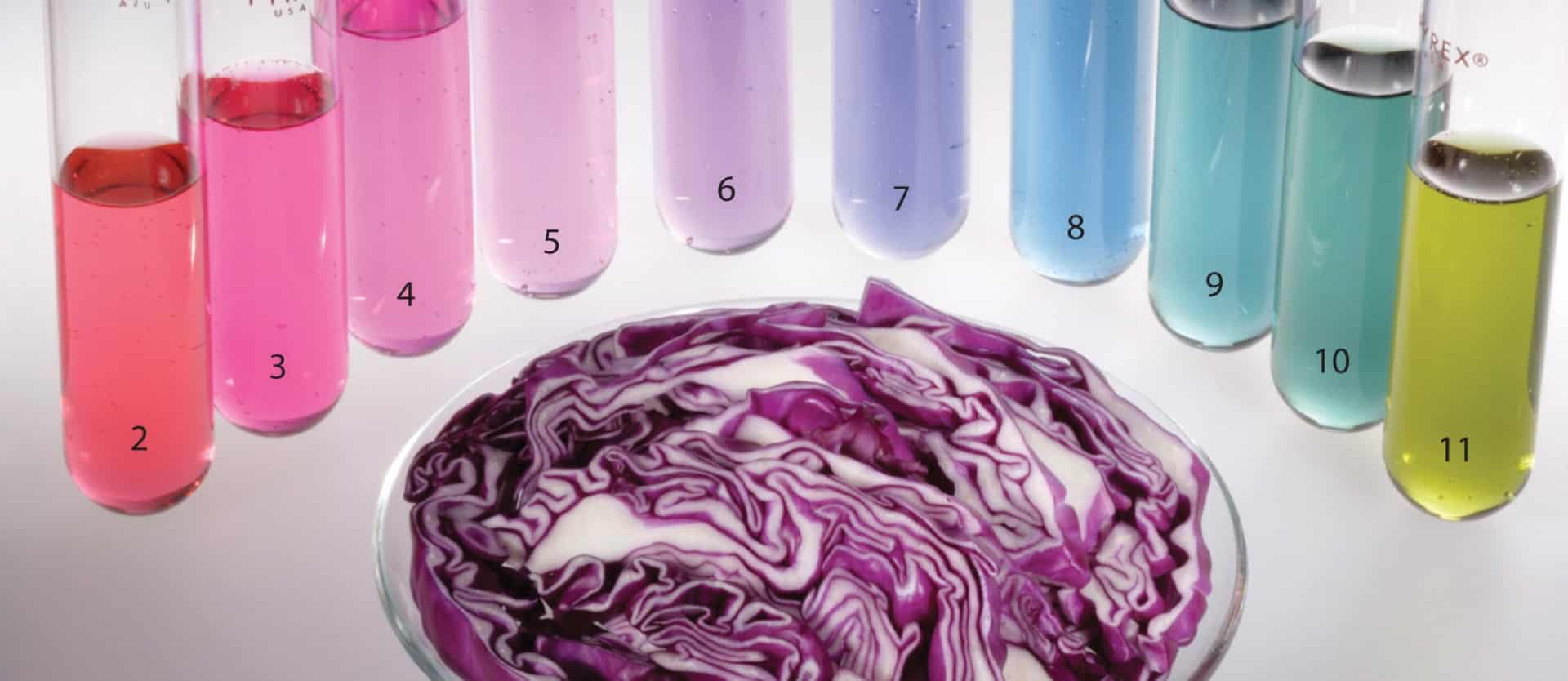
Testing Your Diet with Pee and Purple Cabbage
Plant-based diets tend to be alkaline-forming. This may help protect muscle mass, and reduce the...All Videos for Acid/base Balance
-

Three Reasons Fruits and Vegetables May Reduce Osteoporosis Risk
Even just a single extra serving of fruits and vegetables per day is associated with lower bone fracture risk.
-

Plant-Based Diet for Minimal Change Disease of the Kidney
What are the three reasons plant protein is preferable to animal protein for kidney protection?
-

Do Alkaline Diets Help Athletic Performance?
Can reducing acid-forming foods and boosting alkaline-forming foods replicate the performance-enhancing effects of sodium bicarbonate without the adverse effects?
-

The Best Diet for Upset Stomach
What to avoid and what to eat to help with dyspepsia.
-

Are Acid-Blocking Drugs Safe?
Do the benefits outweigh the risks for acid-blocker drugs (proton pump inhibitors like Nexium/Prilosec/Prevacid)? What about baking soda?
-

How Not to Die from Kidney Disease
What are the three significant dietary risk factors for declining kidney function?
-

Increasing Protein Intake After Age 65
What is the optimal source and amount of protein for senior citizens?
-

HOW NOT TO DIE: The Role of Diet in Preventing, Arresting, & Reversing Our Top 15 Killers
In this “best-of” compilation of his last four year-in-review presentations, Dr. Greger explains what we can do about the #1 cause of death and disability: our diet.
-

Treating Chronic Kidney Disease with Food
Plant-based diets have been shown to slow or stop the progression of kidney failure, but what about all the phosphorus and potassium in plant foods?
-

Preventing Gout Attacks with Diet
If the uric acid crystals that trigger gout come from the breakdown of purines, should gout patients avoid even healthy, purine-rich foods, such as beans, mushrooms, and cauliflower?
-

Protein Source: An Acid Test for Kidney Function
Dietary Acid Load is determined by the balance of acid-inducing food, such as meats, eggs, and cheeses, offset by base-inducing (“alkaline”) foods, such as fruits and vegetables.
-

Stool pH & Colon Cancer
Fermentation of fiber in the gut may help explain the dramatic differences in colorectal cancer incidence around the world.
-

Testing Your Diet with Pee and Purple Cabbage
Plant-based diets tend to be alkaline-forming. This may help protect muscle mass, and reduce the risk of gout and kidney stones. The pH of one’s urine can be estimated with natural pigments, using kitchen chemistry.
-

Alkaline Diets, Animal Protein, and Calcium Loss
The decades-old dogma that the acid-forming quality of animal protein leads to bone loss has been called into question.
-

Alkaline Water: A Scam?
Hawkers of “ionizer” water machines (like Kangen) claim healing alkaline water benefits; skeptics call it snake oil. They both may be wrong.
